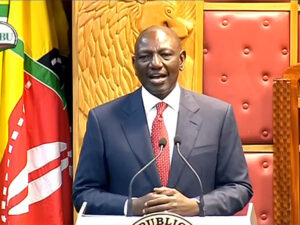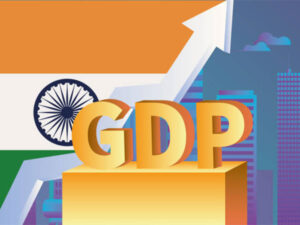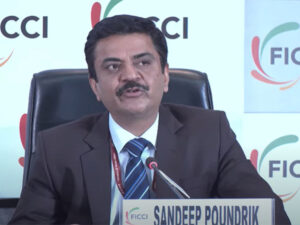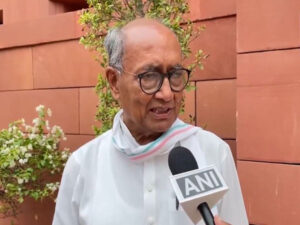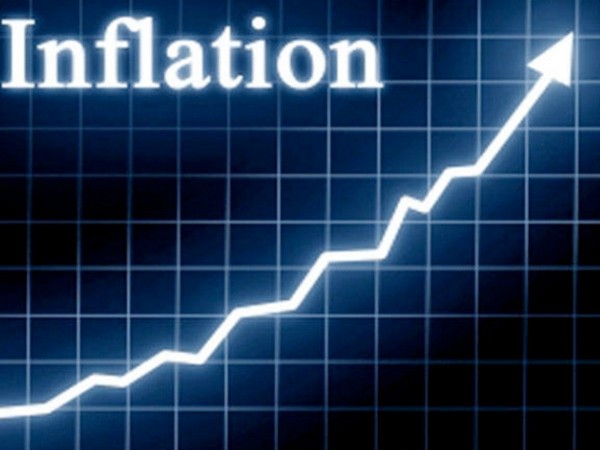
New Delhi [India], January 14 (ANI): India’s retail inflation rate based on Consumer Price Index is expected to remain below RBI’s comfort zone of 6 per cent and will decline materially to 5 per cent by March 2023, said SBI Research in its latest Ecowrap report. For January-March 2023, the average retail inflation is seen at 4.7 per cent.
According to the latest data released by the ministry of statistics, the retail inflation during the month of December was at 5.72 per cent. The latest figures, released on Thursday, showed a marginal decline and further moderation in retail inflation as compared with the previous month. The retail inflation was 5.88 per cent in November from 6.77 per cent in October. The retail inflation in India had remained above 6 per cent till October for over three quarters, which was beyond RBI’s comfort zone.
“CPI inflation fell to a 12-month low of 5.72 per cent in Dec’22, along expected lines, primarily due to huge decline in vegetable prices with sowing practices by farmers undergoing a tectonic shift, aligning with better weather and technology forecasting,” SBI Research report authored by Group Chief Economic Adviser of State Bank of India Soumya Kanti Ghosh said.
“Against the evolving landscape, we see little incentive for further (repo) rate hike, with synchronised past actions on rate front yet to show the full impact,” it added. In its fight against rising inflation, RBI had already hiked the key policy rate by 225 basis points since May 2022 to 6.25 per cent to cool off domestic retail inflation that stayed above its upper tolerance limit for nearly three quarters.
Raising interest rates typically cools demand in the economy, thereby putting a brake on inflation. The latest hike was on December 7 last year, when the Monetary Policy Committee (MPC) of the RBI increased the policy repo rate by 35 basis points, besides deciding to remain focused on the “withdrawal of accommodation” of monetary policy to ensure that inflation remains within the target going forward, while supporting economic growth. The next three-day RBI monetary policy meeting is scheduled for February 6-8. (ANI)
What experts have to say about further easing retail inflation
New Delhi [India], January 14 (ANI): India’s retail inflation during the month of December was at 5.72 per cent, according to the latest data released by the ministry of statistics. The latest figures, released on Thursday, showed a marginal decline and further moderation in retail inflation compared to the previous month.
India’s retail inflation rate based on Consumer Price Index was 5.88 per cent in November from 6.77 per cent during October. Retail inflation in India had remained above 6 per cent till October for over three quarters, which was beyond RBI’s comfort zone. Following are some of the views from analysts and experts on the latest retail inflation data:
Rajani Sinha, Chief Economist at CareEdge:
Retail inflation has eased more than expected in December, bringing the headline print below the RBI’s upper tolerance for the second straight month. The softening is largely attributed to the decline in prices of vegetables, that helped offset the rise in costs of other products of the food basket such as cereals, milk and meat.
However, the concern is that core CPI inflation remains sticky above 6 per cent, with evidence of high inflation in services sector. From the policy perspective, we believe that RBI’s move at the February monetary policy meeting will be a close call with core inflation remaining sticky.
V K Vijayakumar, Chief Investment Strategist at Geojit Financial Services:
Retail inflation at 5.72 per cent in December confirms the downtrend which started in November. This will enable the RBI to go slow on rate hikes.
Vijay Kalantri, Chairman of MVIRDC World Trade Center, Mumbai:
The second consecutive month of decline in retail inflation is in line with RBI’s projection and it is largely led by moderation in food price inflation, particularly contraction in vegetable price inflation.
We expect RBI to hold policy rates in the forthcoming policy meeting in February 2023, given the consistent moderation in retail inflation.
CRISIL Market Intelligence and Analytics:
The slowdown (in inflation) was largely led by sharp fall in vegetable prices with the arrival of new crops in winter. But pressure points remain from food (cereals, milk, pulses) and core inflation.
Retail inflation undershot expectations due to a sharp correction in vegetable prices, as most other major categories saw a year-on-year rise in prices. (ANI)







